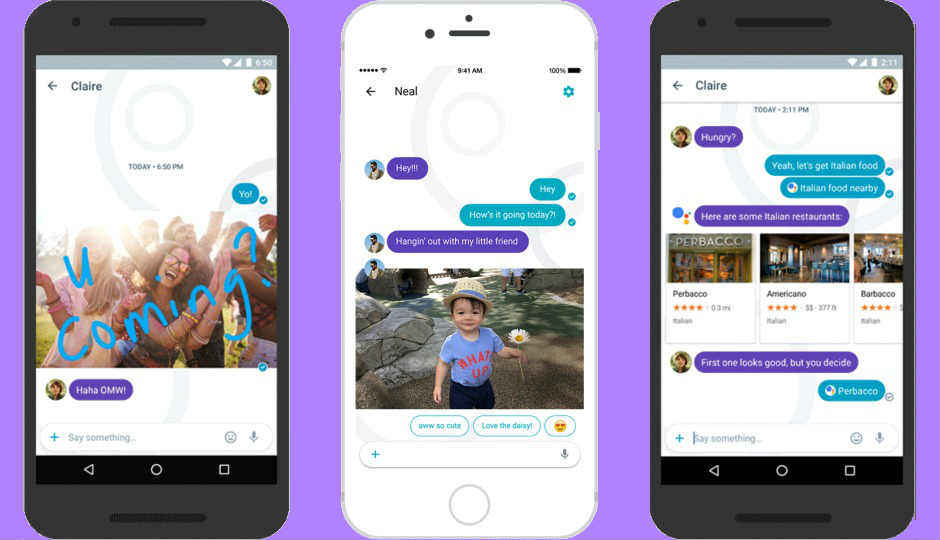Google Allo’s end-to-end encryption will put you in a catch-22 situation
Even before its official launch Google's new messaging app Allo is making headlines for its optional encryption feature. Using it will put you in a fix. Here's why

Last week, Google made a whole bunch of announcements at their annual developer conference – Google I/O 2016. This is where Google also announced their upcoming messaging service Google Allo. History is witness to the fact that Google has yet not been able to crack the social media space. Be it Google+ or Hangouts, for some reason the Mountain View based tech giant has not been able to rub shoulders with the likes of Facebook, WhatsApp and even Snapchat. All that is about to change with Google’s new and upcoming Allo messenger, an app that looks to have a clean and simple interface with a lot of features borrowed from existing messaging apps. One example of this would be that the Allo app will depend upon a user’s mobile number for identification, rather than their Gmail accounts, just like WhatsApp. Another notable feature borrowed from Snapchat would be the ability to write and doodle on images before sharing them with friends. But, of all its exciting features, the most attractive one has to be the Google Assistant, a bot-like, search assistant built right into the messaging app. Yes, users of the Allo app will simply be able to type in @Google in the messenger window to search. They will also get smart suggestions from the Google Assistant as per an ongoing conversation between friends.So If a movie plan is being discussed, Google Assistant will suggest films running in nearby theaters and will also suggest prefered timings as per what it gathers from the conversation. Pretty neat right?
 Survey
SurveyIf Google’s vast knowledge in machine learning is anything to go by then the Google Assistant sounds every bit as promising as the company says. Where Google seems to have faltered in a big way is their approach to the end-to-end encryption built into the Allo app. The company has been taking some heat since their announcement of the Allo app for the same. What’s the muck-up? Well, the problem is that Google will be allowing its users to enable or disable end-to-end encryption on the Allo app, rather than making it a default setting. An ‘incognito mode’ of the Allo app will allow users to make specific conversations encrypted, while others will not be encrypted by default. This has opened up a pandora’s box of questions and insinuations from the tech and security community.
Former CIA operative and whistleblower Edward Snowden also called for a boycott of the Allo app citing privacy issues.
Google's decision to disable end-to-end encryption by default in its new #Allo chat app is dangerous, and makes it unsafe. Avoid it for now.
— Edward Snowden (@Snowden) May 19, 2016
According to a report by the Washington Post, FBI Director James B. Comey is happy with Google’s decision to make end-to-end encryption optional. In a recent speech he remarked that he is largely in favour of encryption, but that a balancing act is necessary keeping in mind safety and security concerns.
While safety issues might be causing Google some trouble before the official launch of the Allo messaging app, they could also be responsible for killing the most awaited feature of the app – Google Assistant. The Google Assistant’s bot-like functionality will only work if its able to throw data back to Google’s servers to process a user’s query or to make suggestions based on conversations. The AI is also supposed to learn and adapt to a user’s preferences over a period of time. It cannot do so if chats are encrypted end-to-end. So naturally, this puts a user in a catch-22 situation. If the conversations are encrypted the Assistant cannot be used and If they are not, chats will no longer be private and will give government (or hackers) the ability to tap into them.
Encryption is messaging services is becoming the need of the hour with hack attacks on an all time high. Apple’s iMessage app is completely encrypted and now, so is Whatsapp. Snapchat is also reportedly eyeing a more secure encryption. Currently, even though snaps are deleted from the user’s phone and snapchat servers after they are viewed, the company stores unopened snaps for a period of 30 days on their servers.
Following this internet upheaval, Google has not yet clarified its stand on end-to-end encryption for the Allo app. Although, if the company wants it can change encryption to default or work out a system where it can marry its assistant and encryption features. For now, it looks like privacy will be the price to pay for those who let Google into their lives.